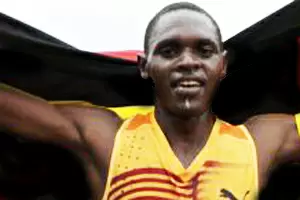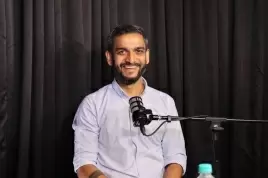When brute strength is topped with cold calculation

15-October-2010
Vol 1 | Issue 7
Long distance races can be very entertaining. Especially when some of the world’s best runners take part in it. The 10000 metres race in the just concluded Commonwealth Games in New Delhi was no exception. Significantly, the race taught a few lessons in the art of success.
On October 11, the Ugandan, Moses Ndiema Kipsiro, won the 10000 metres beating three Kenyan runners who set the pace for most part of the race, and were obviously aiming for a clean sweep of the medals at stake.
Moses was the underdog in the race. He had earlier won the gold medal in the 5000 metres race overcoming a stiff challenge mounted by three Kenyan athletes. This time, it seemed another trio of Kenyans were determined to put him out of the race by working in tandem. As they kept changing the pace, shifting gears, and exchanging leads between them, and now and then furtively looking behind to check if the Ugandan had fallen back, it was clear they had a strategy in mind.
 |
|
Moses pulled out all the stops in the final lap and shot ahead of the Kenyan trio to win the gold in the 10000 metres race
|
By changing the pace of the race frequently, yet ensuring that they held on to the first three places and not letting Moses overtake them, it seemed they wanted to wear him out physically and rattle him enough mentally so that he would give up the race.
I was beginning to like the race, as it gave me a sense of déjà vu. The sight was a familiar one, something I had often visualised in my mind. Three racers together trying to box a guy, block his path, and ruin his race. It appeared unfair. One against three always is, isn’t it? But Moses was running the race, as I often visualised it. He stuck close to the three, not allowing them to shrug him off.
If they ran hard, he stepped up that bit. When they slowed down, he too fell back. All the while, he ensured that he was tailing them closely, at breathing distance. He was like the crouching tiger, waiting to pounce at the right time. He was keeping the reserves of his energy for the final assault.
Run, if you will, ahead of me. Keep up the pace. Try out all your strategies. But at the final lap, I will pull out all my reserves, my whole strength, and then, let’s see if it’s your strategy or my brute strength that’s going to matter. This is probably what he was telling himself, all the while, until the bell rang for the final lap.
Moses transformed into a new person, possessed of a new aggression and strength that nobody knew he had it in him. He set such a torrid pace on the track that the Kenyans had no clue what he was capable of until the race was over.
Moses declared after the race: “I am very happy and I thank God that he gave me the strength to win the double.” The race was a lesson in corporate strategy, demonstrating the importance of the staying prowess, and building up of the reserves and resources to mount the assault against your rivals at the opportune time.
















